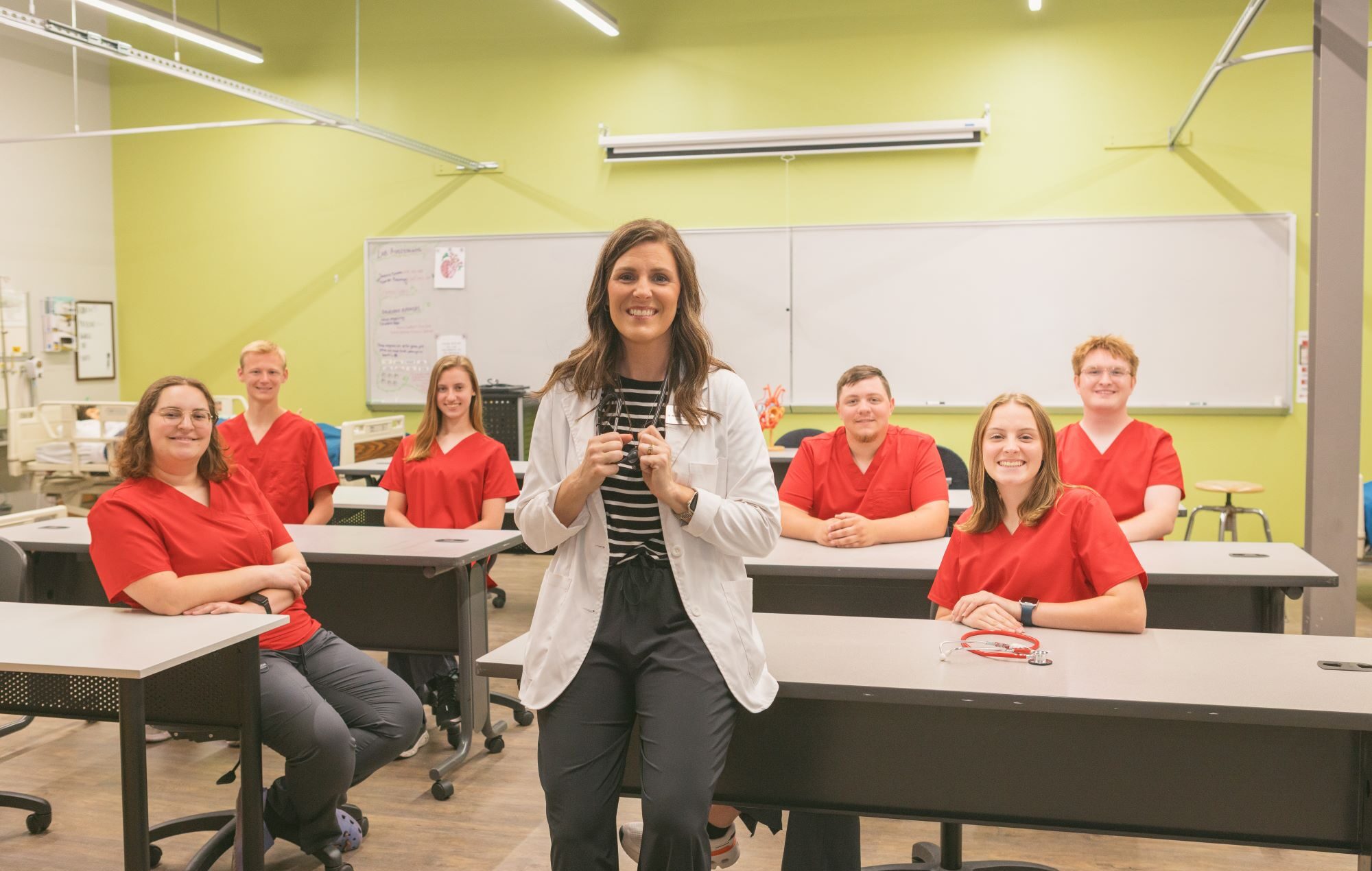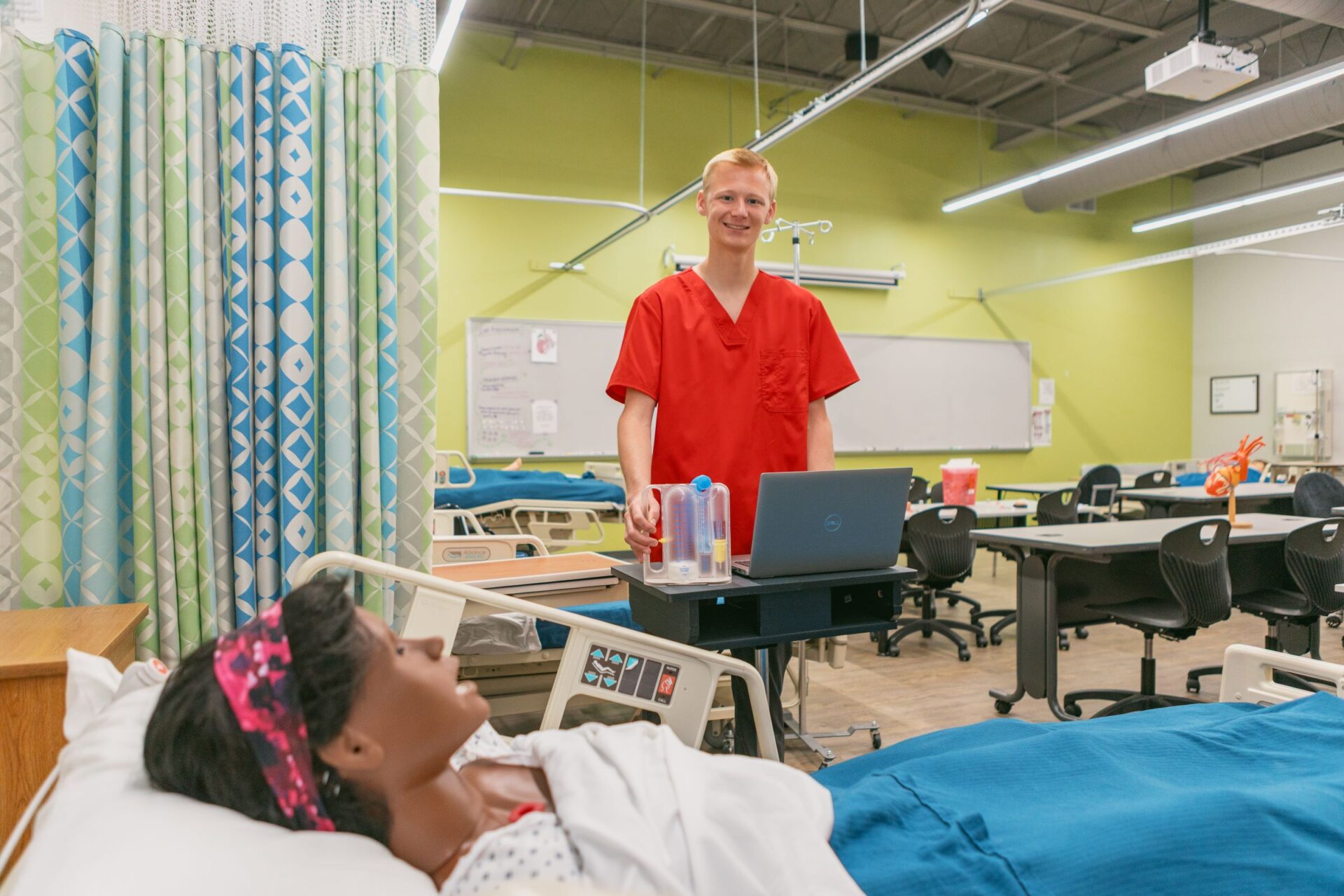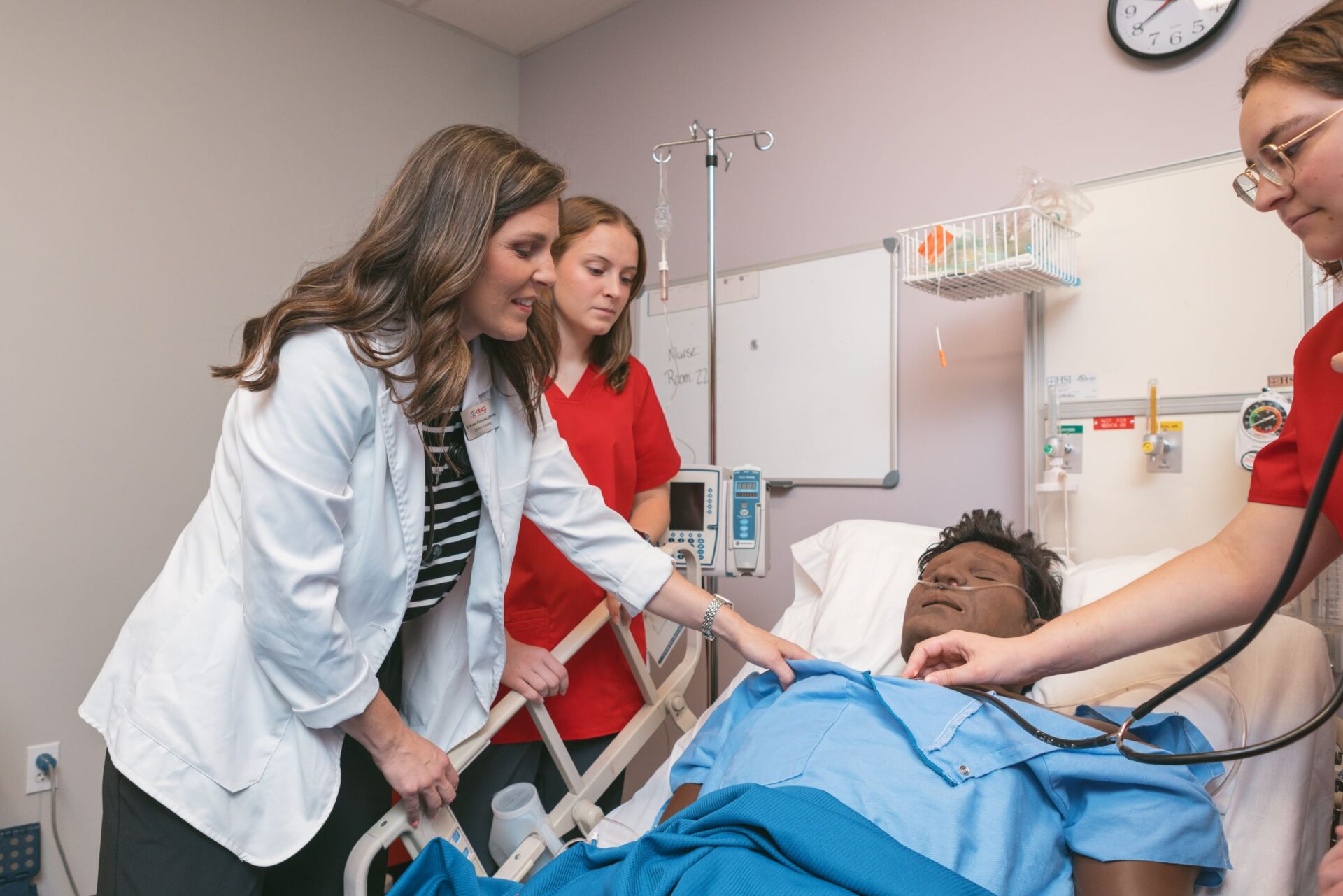A BSN qualifies you for a variety of roles, including medical or surgical nurse, public health nurse, pediatric nurse, ICU nurse, or missionary nurse. It also prepares you for future graduate-level roles.
Hospital Nurse
An RN in a hospital setting can specialize in several areas with different certifications, including surgical nursing, pediatric nursing, labor and delivery nursing, trauma nursing, ICU nursing, and many others. If you’re looking for a more business-oriented nursing vocation, nursing administration is a strong choice.
School Nurse
Wanting to keep working in an academic location after earning your nursing degree? You might be interested in a school nursing position where you can work at places like elementary schools or college campuses. A school nurse’s primary job is to ensure students are healthy, safe, and ready to learn. They provide direct care, manage chronic conditions, and promote mental health. School nurses fall under the category of public health nurses and promote overall school community health through education and wellness initiatives.
Missionary Nurse
Missionary nurses provide the same care as hospital nurses, but often work in underdeveloped areas with limited resources. This can be a great way to access unreached people groups both spiritually and physically. Health and hygiene education also play a part in this nursing role. If you’re looking to serve or grow your resourcefulness, you could find your place nursing on the mission field.
Military Nurse
Military nurses are BSNs who work within branches of the military to provide care for veterans, service members, and their families. These healthcare professionals can pursue employment in various nursing roles with the Army, Navy, Air Force, Marines, National Guard or Coast Guard. To join the military as a nurse, you must be a U.S. citizen or permanent resident.
Factory or Construction Site Nurse
Nursing majors can graduate and become nurses on staff in factories or construction sites. These nurses prevent and manage accidents, and routinely check the health of workers. Part of their job is balancing safety with productivity. These nurses are also referred to as industrial nurses or occupational health nurses.
Cruise Ship Nurse
That’s right – your career can set sail! A cruise ship nurse works aboard a cruise ship to provide medical care to passengers, crew members, and other personnel. These nurses handle a wide range of medical issues, from minor ailments to emergencies. Experience in emergency or critical care settings is typically required for handling the wide range of medical situations that may arise on board.
Public Health Nurses
Public health nurses work in a variety of settings, including public health departments, community health centers, schools, and non-profit organizations. Public health nurses focus on health and hygiene education for the general public. They sometimes work in underserved communities, identifying and addressing health disparities.
Lobbyist for Nursing Laws
In this career, your nursing degree will mix with politics in order to advocate for policies, regulations, and laws that impact the medical field and your patients. If you’re passionate about protecting and improving the medical world, a lobbyist could be the right focus in nursing for you. It includes activities such as meeting with legislators, writing letters, and participating in grassroots campaigns. The goal is to influence public policy in a way that benefits both nurses and the patients they serve.
Online Nursing
If you’re interested in online nursing, you might consider working for a service like Teledoc Health. This remote job would come with duties like providing evidence-based treatment via telephone or video, conducting virtual assessments and diagnoses, and developing individualized treatment plans and prescribing medications. This job may require a graduate-level education.
Are Nurses in Demand?
Yes, good nurses are highly sought after. At Grace College, we consistently have recruiters reaching out to talk to our nurses, from home healthcare agencies to hospitals. Right now, nursing majors are almost guaranteed a job coming out of school. The biggest variables are what line of work you are interested in and the amount of money you sign on for.
Find Your Calling
In the end, you’ll have several choices on how to use your nursing degree and where you’d like to emphasize your education.
See Full Article











